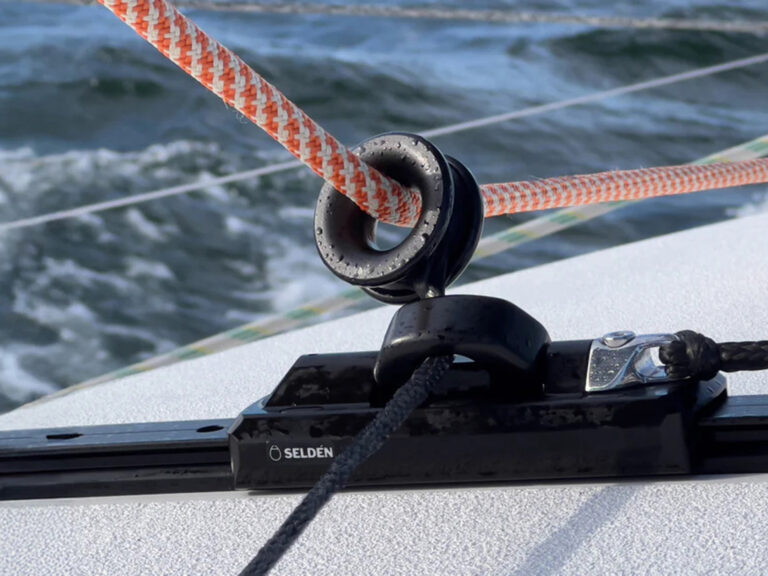
Crewed Charter
Steve McCrea, president of Ed Hamilton & Co. , shares these tips for finding the best crewed charter vacation. McCrea is a member of the American Yacht Charter Association, the Charter Yacht Brokers Association, and a former general manager of Sunsail Sailing Vacations in the United States.
1. Choose a Broker and Stick with Him:
It’s good to shop around at first to find a good fit, but at some point it’s advantageous to choose one broker to work with rather than trying to pit one broker against another, which is usually the worst way to utilize a broker. A good broker will be your advocate and should act more as a consultant than a salesperson, and you should get that feeling. Your broker should have seen the boats and met and interviewed as many crews as he or she can, will let you know when they haven’t, and will be prepared to vet the boats and crews they haven’t seen. It’s best to use a broker who is a member of AYCA, (American Yacht Charter Association), CYBA, (Charter Yacht Brokers Association), preferably, both.
2. Choose a Location Wisely:
This is key for bareboat charters as well as crewed charters. It ties into choosing a broker as well, as a good broker should have good destination knowledge, not just a sense of the various stops and general ambiance of the area. Your broker should also be able to advise on the sailing conditions, and particularly, the expected sea state.
When considering the sea state, it’s important to think primarily of the lowest common denominator, i.e. — your guests with the least amount of boating experience. Very often we have clients choosing locations solely by where flights are most direct, (or more frequently, cheapest).
Certainly ease of air travel has to play a role, especially for families, but choosing a sailing location only on flight availability is rarely a good idea. One may save two hours in an airport, only to lose five hours beating or motoring upwind – airplanes go upwind far better than sailboats! Naturally the more unspoiled locations are harder to fly to, but they’re often worth it.
3. Set a Realistic Budget:
Everyone has a budget, from most economical to the biggest spenders. It’s important to set this realistically — neither too low, nor too high, as both can be problematic. Everyone wants a good value, of course, but setting a budget is all about maintaining expectations. At the end of the day what matters more than what you spent is whether or not your expectations were met, or hopefully exceeded, by your experience.
If you set too low a budget and focus too much on getting a deal, you’re bound to compromise on the quality, and need to lower your expectations accordingly. There are sometimes discounts and offers, but they’re generally not large with most good crewed yachts, and fairly rare with the most popular ones. If a boat is offering a big discount, there’s probably a reason, and not usually a good one. The best deal is always found by choosing the right boat and crew for your group.
It’s perhaps counterintuitive, but it can be difficult, impossible even, to meet expectations if your budget is too high. If you’re pushing to the top of your budget because your heart is set on the newest, shiniest, largest boat you can possibly attain, it’s not unlikely that your expectations will rise to an unattainable level. Keep the budget comfortable enough to enjoy your vacation (and to be able to afford another!).
Remember also to budget for a crew gratuity, which can be a notable expense. Your broker should advise you of this, as well as explain what tip levels are appropriate. If you have a broker suggesting crew gratuity as a place to save money, you’ve found a completely unscrupulous broker and you should move on. They likely have a poor reputation with the boats and crews and that’s no way to start the relationship.

4. The Crew Drive the Charter Experience:
Books could be written on the subject, and every situation is different. A key guideline is remembering that the crew is generally a more important consideration in making your choice than the boat is. The crew drive the experience. What’s great about that goes hand in hand with staying realistic about the budget. There are excellent crews on even the smallest boats, which means you can have a great charter at any reasonable price point. The emphasis on crew is stronger in Caribbean yachts in the sub-85-foot range or so, but remains a point to consider in almost all crewed charters.
While the crew is key, of course the boat has to meet your standards. When planning on paper, the vast majority of charterers go straight to the layouts, (this phenomenon is true of bareboats as well as crewed yachts), and they often make their choices based on the accommodations. You of course need a comfortable place to call home for the week, but the reality is that you’ll spend about one percent of your waking hours belowdeck. Remember to focus on features that are important, such as outdoor space, access to water, comfortable outdoor seating and lounging areas, room both to enjoy the sun and to escape it.
It’s generally not good to get wrapped up in specific watersports toys, for example, SUPs, kayaks, towable toys, etc. If something’s important to you, by all means let your broker know, but provided the boat has a tender with a large enough outboard to handle wakeboards and/or waterskis, then any specific items you may want can be rented or purchased.
5: Dates and When to Book:
Many people are locked into when they can go, especially families with children in school. However, the more flexible you can be, the more choices you’ll have and subsequently the better value for money you’ll get. If possible, try to book 6 to 8 months out, and for the most popular weeks, (New Year’s, Presidents Week, Easter), 10 to 12 months is better. We’re generally able to find customers suitable boats even within a month, (except for New Year’s), but the choices will be greatly reduced so it’s a matter of choosing what’s left rather than getting exactly what you want. Those holiday weeks are the ones to avoid if possible, as they’re much busier on the water, and will cost more, especially in terms of airfare. A good broker can advise on when a good time to go is, and what weeks are busiest.
Click here to read more about how to plan a charter vacation.








